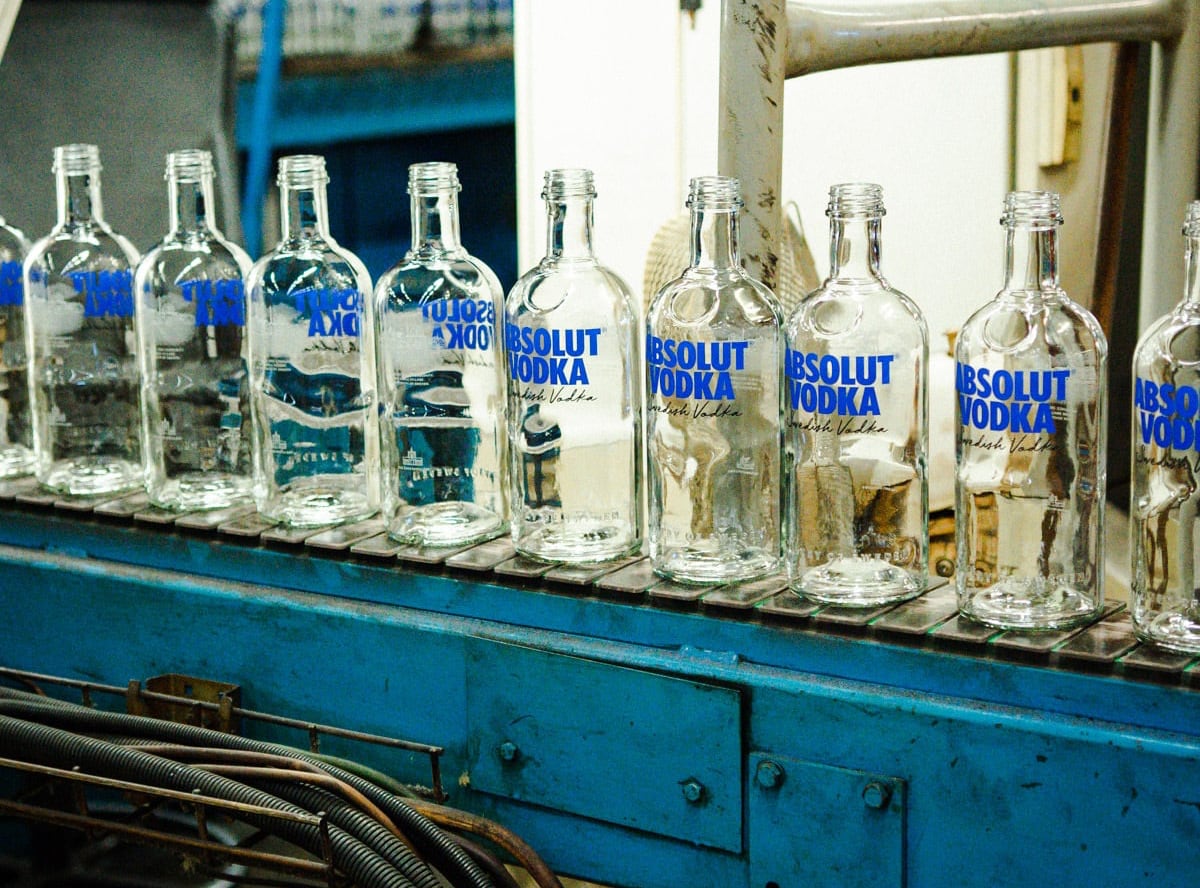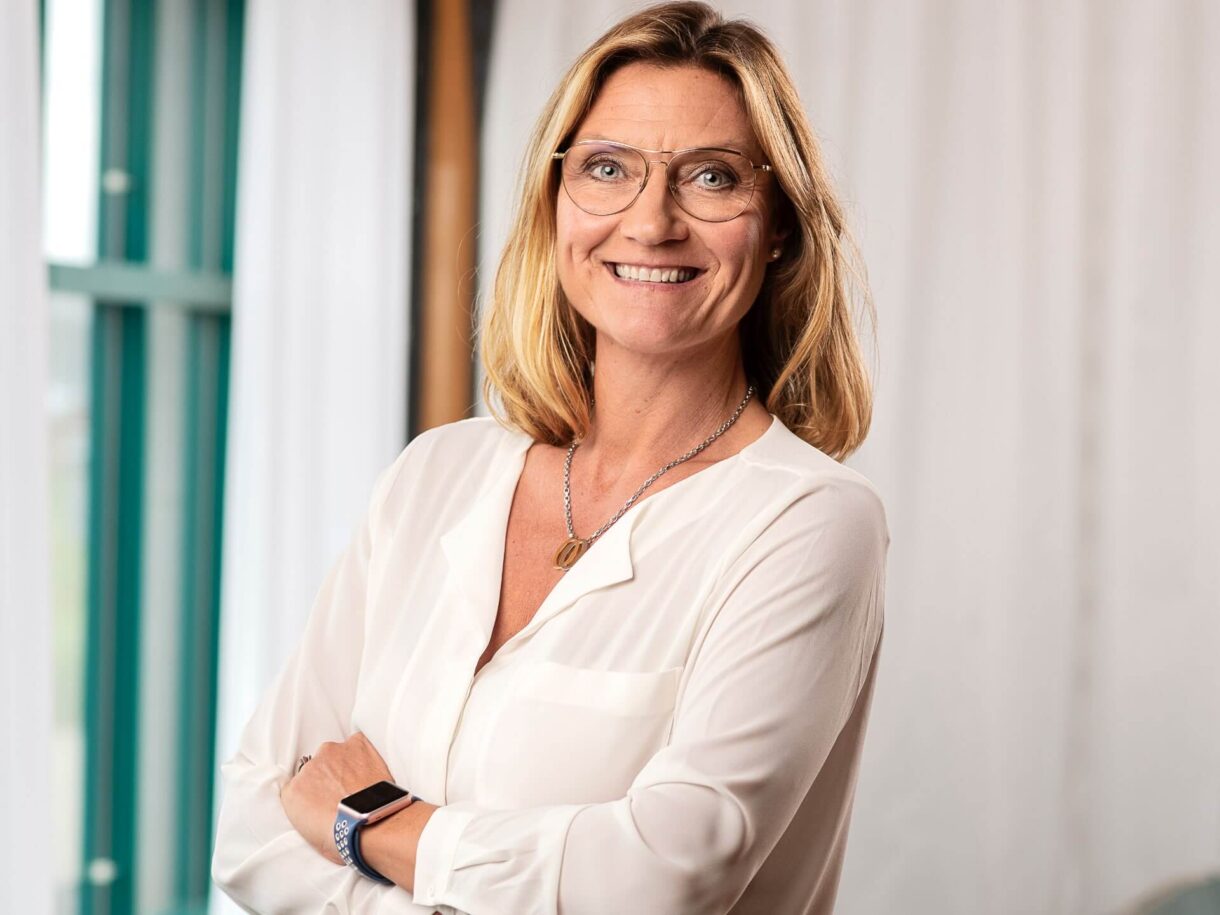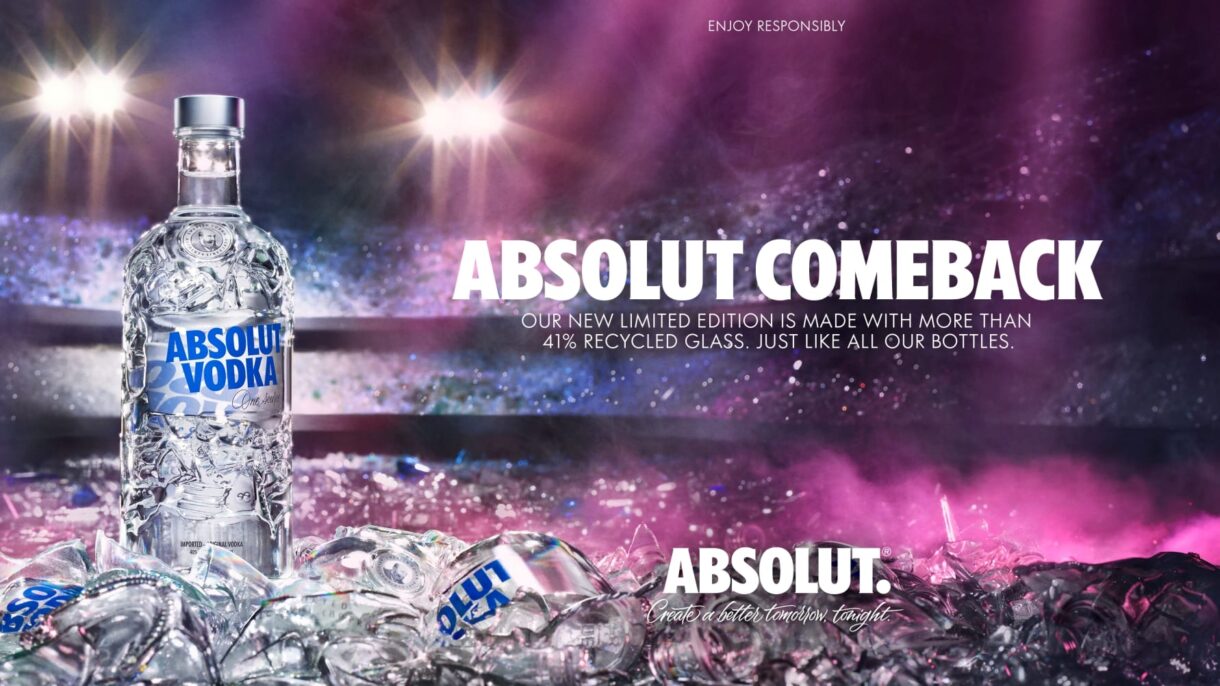Absolut Vodka’s iconic bottle passes the 100% recyclability test
We all know that glass is 100 per cent recyclable but what is less clear is how the recycling process is affected by different types of labels, adhesives and decorations on the bottle. Last year we decided to find out whether our iconic bottle is affected.
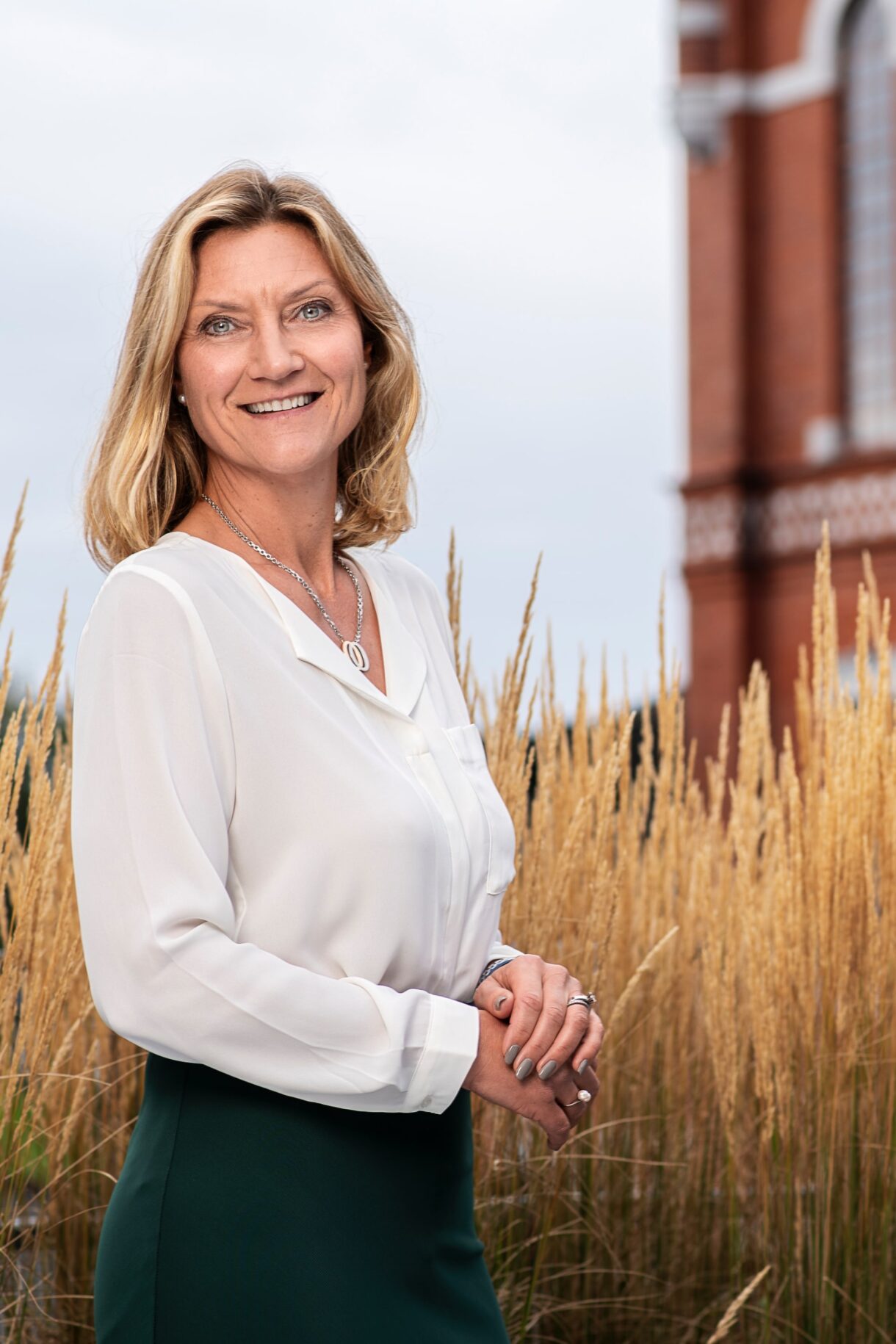
Last autumn, Absolut Vodka’s glass bottles underwent a series of tests at Swedish Glass Recycling (SGÅ), which recycles more than 90 per cent of the country’s glass packaging. The test wasn’t compulsory or even a regulatory requirement, but we firmly believe that we have a responsibility to ensure our packaging isn’t designed in a way that is detrimental to the glass recycling process.
“We didn’t need or have to do the test, but we wanted to learn more. Everyone knows that glass is recyclable, but we didn’t know how the different decorations on our bottle, as well as paper and plastic labels, might impact the recycling process,” says Tina Robertsson, Director of Sustainable Performance at Absolut. “So, we designed a test to find out. We have a responsibility to ensure that our designs do not come in the way of the recycling of the packaging.”
There are several reasons why recycling glass is important. For starters, all the raw materials used in glass production in Sweden, from sand to dolomite to lime and feldspar, are imported. So, the more that can be recycled, the less transport is needed, and the consumption of finite natural resources is reduced. Recycling saves energy (melting crushed glass uses around 20 per cent less energy compared to melting new materials); it reduces carbon dioxide emissions (because melting crushed glass requires less fuel and the crushed glass does not contain any carbonates); and naturally, more recycled glass means that less is ending up in a landfill.
What did the test assess?
SGÅ assessed the recyclability of our glass, with different labels, different types of adhesives on the labels and coloured decorations on the glass (not the bottle cap) – and whether it could all be recycled into bottles, and if not, whether it could be recycled for other uses. The answer was a resounding yes and having proof of our iconic bottle’s 100 per cent recyclability is an important milestone for us as Absolut Vodka strives for circular resource use.
We tested four different bottle types: Absolut Vodka, Absolut Watermelon, Absolut Citron and Absolut Elyx. While all the clear glass was able to go back to the manufacturing of new clear glass packaging, the decorated glass was recycled into insulation and the smallest pieces were recycled into foam glass. Labels that remained intact were recycled as combustible waste. We now also know that glass bottles with perforated sleeves could be recycled in the glass recycling process to a similar extent as glass bottles with labels.
We had been anticipating that some of our labels could possibly make it harder to recycle the glass so that it may end up in a landfill. But that wasn’t the case. In fact, zero glass fractions (fragments of the bottle) went to landfill. Not all glass in Sweden is recycled into glass bottles. About 60 per cent of returned glass packaging in Sweden becomes new bottles and glass jars, 30 per cent is used to make insulation glass wool and 10 per cent is recycled into foam glass (used for foundation reinforcement in the construction of roads and houses). However, for the Absolut Vodka and Elyx bottles, all the different glass fractions were recycled to 75-90 per cent as clear glass for new packaging – supporting the concept of a circular economy.
“I was standing where the fractions heading to landfill came out, and I was expecting to see labels attached to glass on the conveyor belt. But they didn’t come,” says Tina. “We need our packaging to be recyclable. It can be a challenge because designers want to create new creative labels. So, it’s great to see that our bottle is 100 per cent recyclable – and that our consumers now know that our glass bottles can be recycled over and over again.”
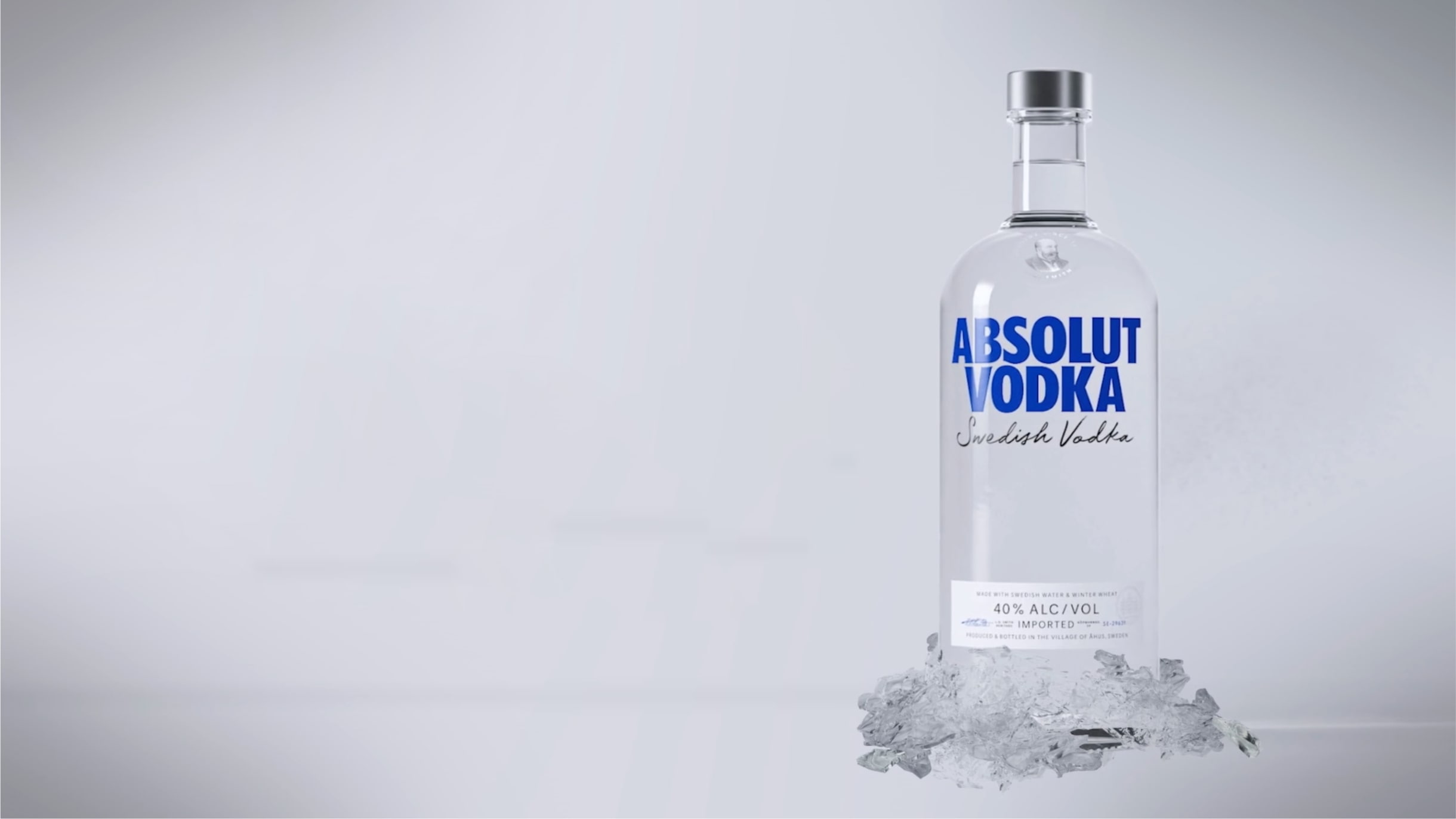
100% recyclable
